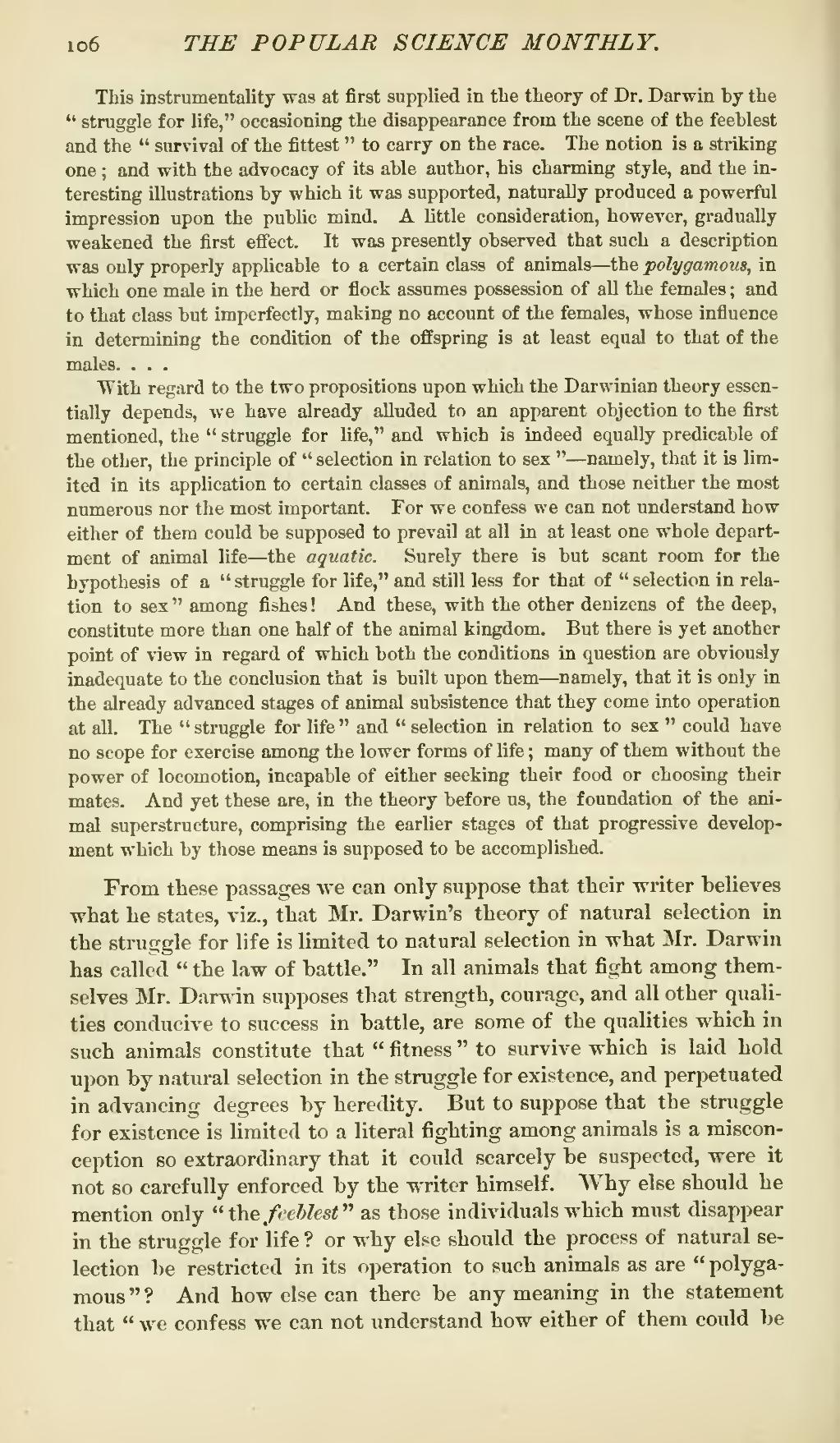This instrumentality was at first supplied in the theory of Dr. Darwin by the "struggle for life," occasioning the disappearance from the scene of the feeblest and the "survival of the fittest" to carry on the race. The notion is a striking one; and with the advocacy of its able author, his charming style, and the interesting illustrations by which it was supported, naturally produced a powerful impression upon the public mind. A little consideration, however, gradually weakened the first effect. It was presently observed that such a description was only properly applicable to a certain class of animals—the polygamous, in which one male in the herd or flock assumes possession of all the females; and to that class but imperfectly, making no account of the females, whose influence in determining the condition of the offspring is at least equal to that of the males. . . .
With regard to the two propositions upon which the Darwinian theory essentially depends, we have already alluded to an apparent objection to the first mentioned, the "struggle for life," and which is indeed equally predicable of the other, the principle of "selection in relation to sex"—namely, that it is limited in its application to certain classes of animals, and those neither the most numerous nor the most important. For we confess we can not understand how either of them could be supposed to prevail at all in at least one whole department of animal life—the aquatic. Surely there is but scant room for the hypothesis of a "struggle for life," and still less for that of "selection in relation to sex" among fishes! And these, with the other denizens of the deep, constitute more than one half of the animal kingdom. But there is yet another point of view in regard of which both the conditions in question are obviously inadequate to the conclusion that is built upon them—namely, that it is only in the already advanced stages of animal subsistence that they come into operation at all. The "struggle for life" and "selection in relation to sex" could have no scope for exercise among the lower forms of life; many of them without the power of locomotion, incapable of either seeking their food or choosing their mates. And yet these are, in the theory before us, the foundation of the animal superstructure, comprising the earlier stages of that progressive development which by those means is supposed to be accomplished.From these passages we can only suppose that their writer believes what he states, viz., that Mr. Darwin's theory of natural selection in the struggle for life is limited to natural selection in what Mr. Darwin has called "the law of battle." In all animals that fight among themselves Mr. Darwin supposes that strength, courage, and all other qualities conducive to success in battle, are some of the qualities which in such animals constitute that "fitness" to survive which is laid hold upon by natural selection in the struggle for existence, and perpetuated in advancing degrees by heredity. But to suppose that the struggle for existence is limited to a literal fighting among animals is a misconception so extraordinary that it could scarcely be suspected, were it not so carefully enforced by the writer himself. Why else should he mention only "the "feeblest" as those individuals which must disappear in the struggle for life? or why else should the process of natural selection be restricted in its operation to such animals as are "polygamous"? And how else can there be any meaning in the statement that "we confess we can not understand how either of them could be
